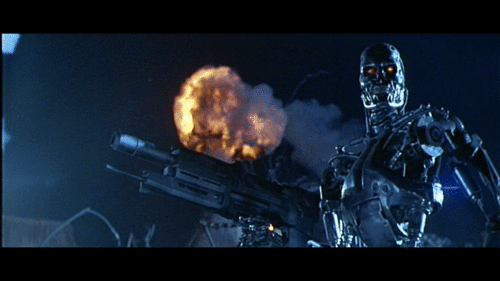
In the past, we’ve not been shy about highlighting a number of the issues that exist with the DMCA, and recently fought back against its abuse in court. However, it remains true that tackling repeated instances of copyright infringement online can be repetitive work, and it’s no surprise that some people opt to outsource this task to third parties who have an army of specially programmed bots at their command.
These kind of automated systems scour the web, firing off takedown notifications where unauthorized uses of material are found – so humans don’t have to. Sounds great in theory, but it doesn’t always work out as smoothly in practice. Much akin to some nightmare scenario from the Terminator, sometimes the bots turn on their creators.

Be afraid
We saw this happen fairly recently on WordPress.com, in an it-would-be-funny-if-it-wasn’t-so-serious kind of scenario. Attributor.com sent in a formally valid takedown notification on behalf of an academic, demanding that we disable access to a PDF that infringed upon his copyright. Following the statutory requirements, we did so, and notified the user, with instructions on how to submit a counter notification if they wished to challenge the removal.
Within a few days we heard back from the (understandably unhappy) site owner, who explained that they were in fact the copyright holder. The takedown notification was issued by an agency working on his behalf, and their bot had mistakenly targeted the original author’s site.
Ouch.
The confusion was eventually sorted out after the agency retracted the original takedown notice, and we restored access – but not before it was unavailable for almost five full days.
The DMCA notification and takedown process is a powerful weapon in the battle against copyright infringement, but it can also cause severe harm to freedom of speech when used inappropriately. As a result, it is something that should be deployed carefully, and with respect. All too often, overly broad takedown notifications are sent to online service providers in a scatter gun approach, with the financial interests of third party agents (who are routinely paid by instance of successful takedown) placed above the accuracy of the reports.
There is no question that there are a lot of issues involved in choosing to use bots to enforce copyright, but having them turn against you has got to be one of the worst.